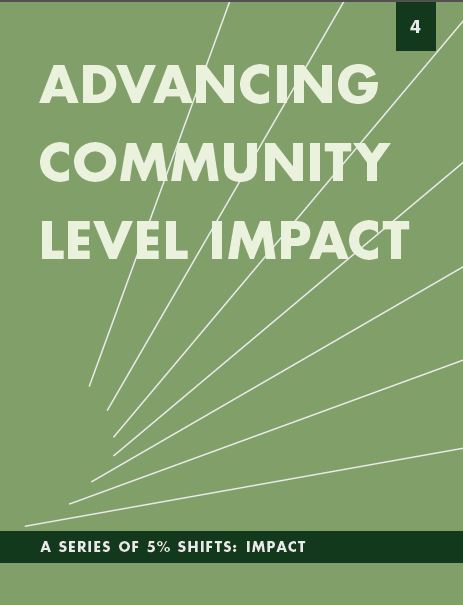
Advancing Community Level Impact
This report examines how two organizations developed and executed strategies that advanced their commitment to bridge the service-organizing “divide” by thinking beyond individual needs to address problems at a community level.
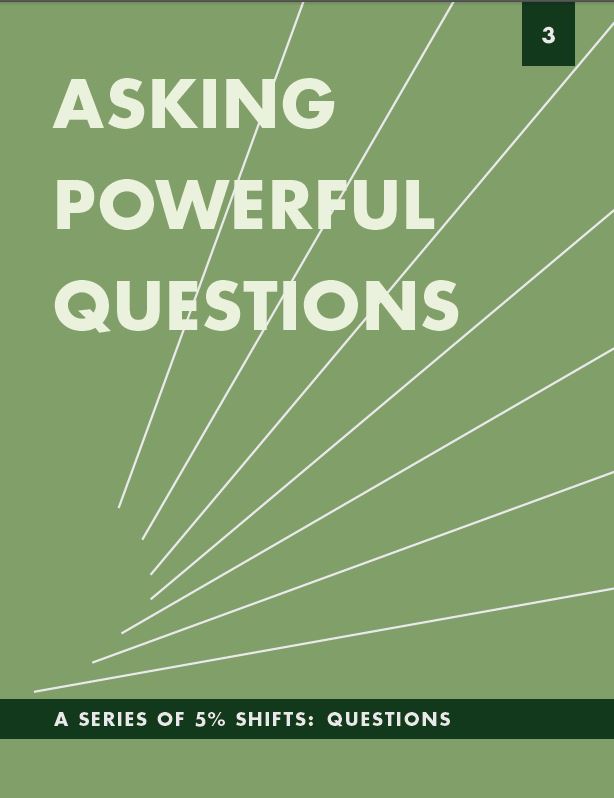
Asking Powerful Questions
This publication includes a conceptual framework, examples, agendas and worksheets to learn to and apply asking powerful questions
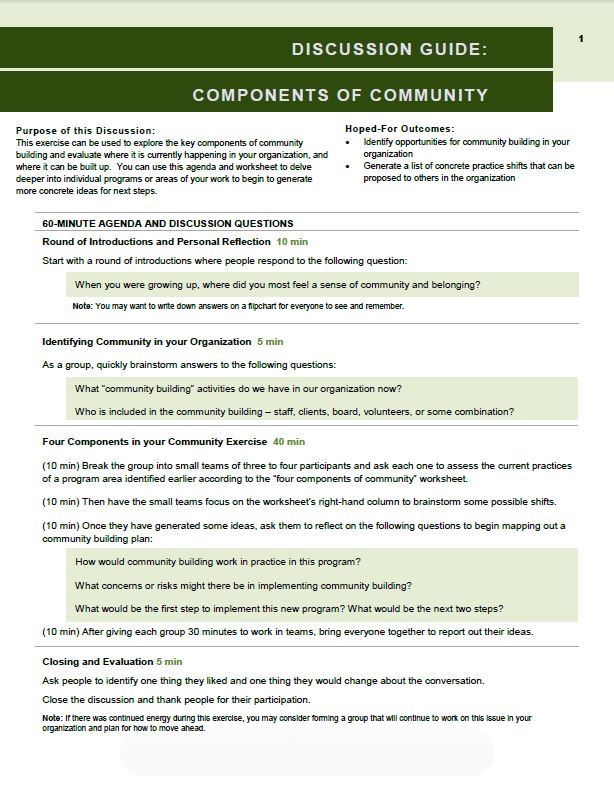
Components of Community
This guide helps organizations explore the key components of community building, evaluate how community building is currently taking place in the organization, and opportunities to expand community building.
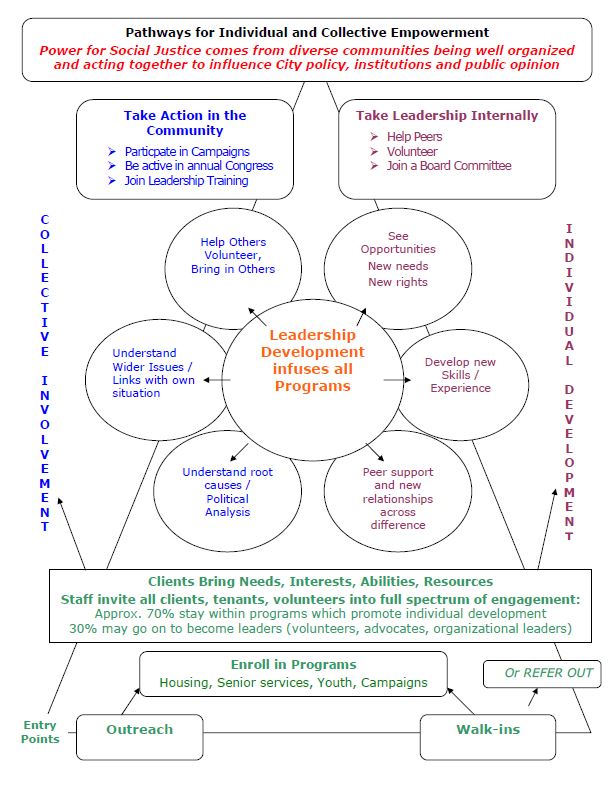
Pathways for Individual and Collective Empowerment
This detailed diagram illustrates how collective involvement and individual development empower social justice actions within a community. It can be used with the organization to measure change across a spectrum to increase understanding of the forces that are driving change and where efforts need to be focused.
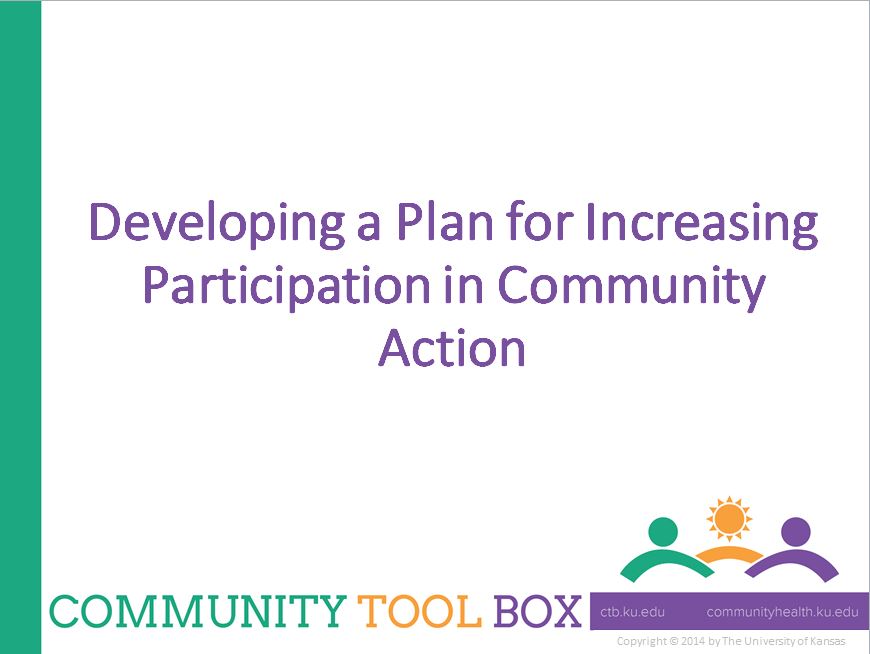
Developing a Plan to Encourage Participation
This resource provides a comprehensive list of questions to ask when developing a plan to become more inclusive of community members. It offers a checklist of action, examples to study and a PowerPoint presentation that summarizes the key points in the section and could be used as a foundation to customize for the organization.
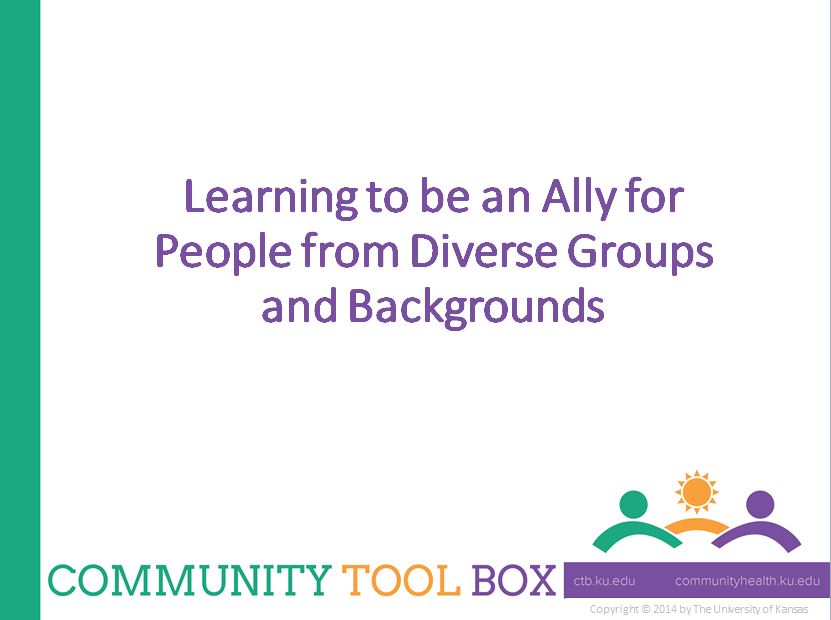
Building Alliances with Diverse and Marginalized Groups
This section of the University of Kansas Community Toolbox explores building alliances with diverse and marginalized groups, promoting leadership and supporting people to gain power in their community.
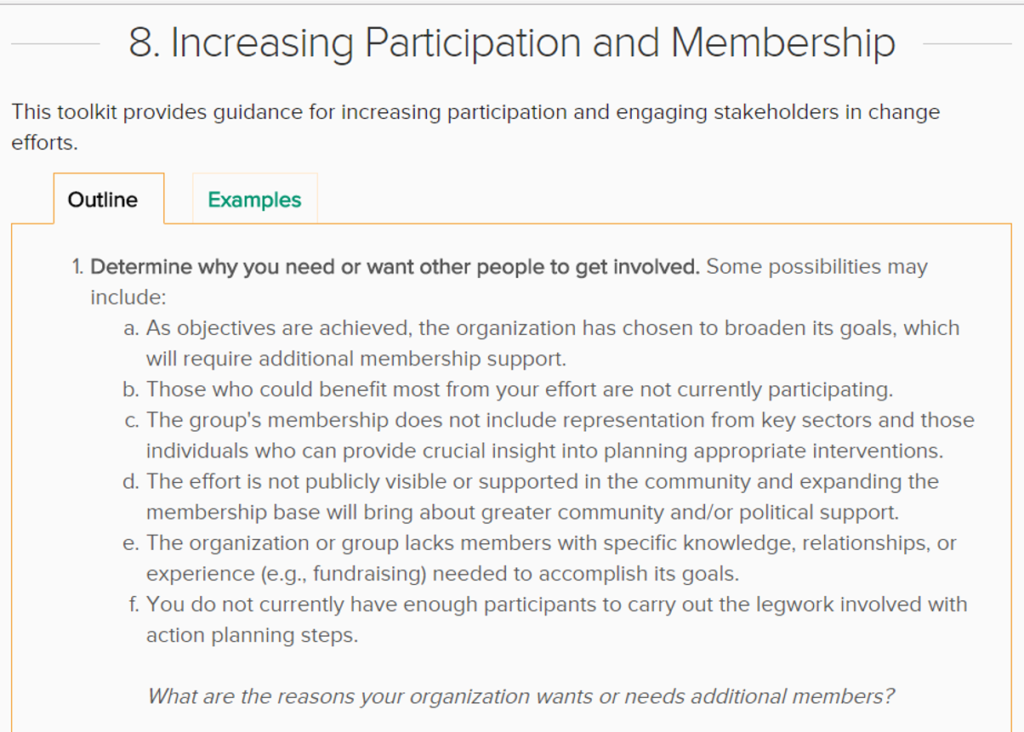
Increasing Participation and Membership in Community Change
This toolkit provides step-by-step guidance for increasing participation and engaging constituents and community members in a change process.
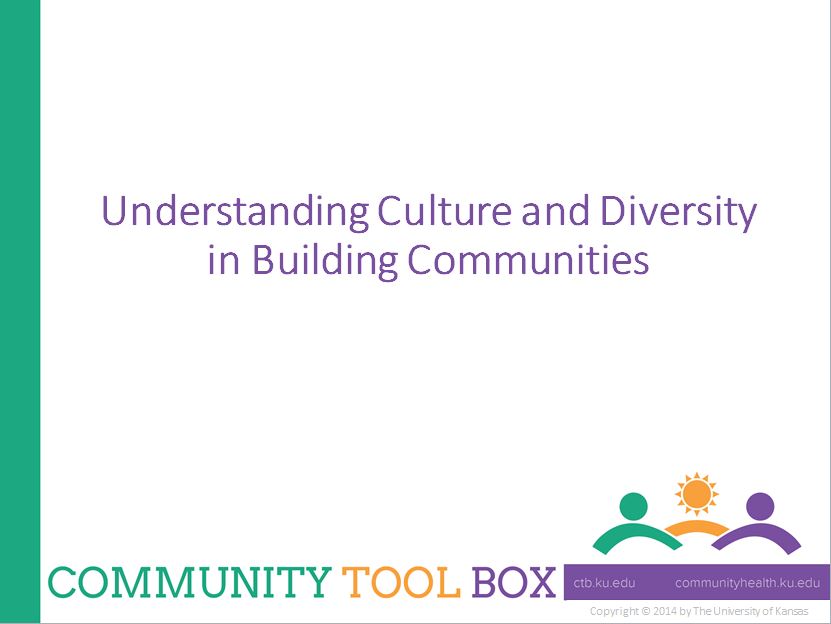
Understanding Culture and Diversity in Building Communities
This tool box contains information on understanding culture and diversity, how to strengthen multicultural collaboration, and build inclusive communities.
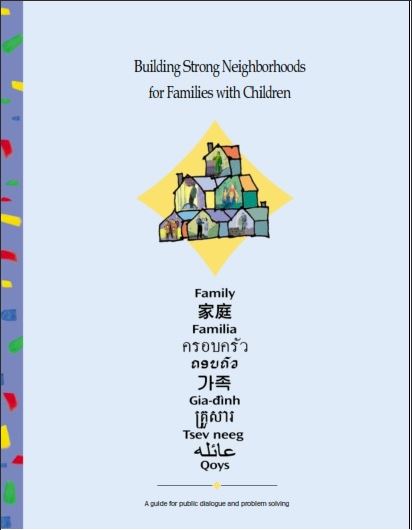
Building Strong Neighborhoods for Families and Children
This four-session discussion guide is to help people make their neighborhoods better places for families with children by identifying challenges and opportunities, and working toward solutions. It is from the Study Circles Resource Center, developed in collaboration with the Anne E. Casey Foundation project: Making Connections.
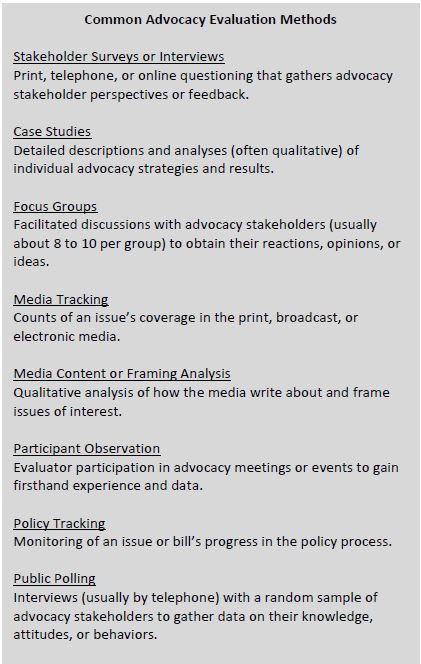
Unique Methods in Advocacy Evaluation
This brief describes four methods that were developed to respond to the unique challenges of measuring advocacy. Included are step-by-step instructions for use, rating scales, and sample questions that can guide evaluation.




